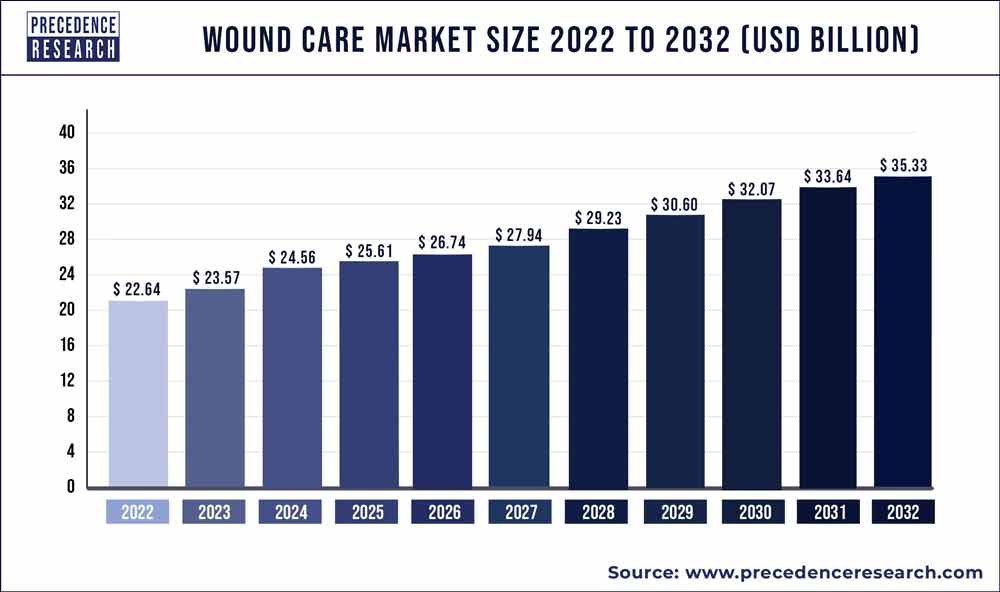Technology
Business-to-Business E-commerce Market Size to Garner USD 44.88 Trillion by 2032
The global business-to-business e-commerce market size is expected to increase USD 44.88 trillion by 2032 from USD 9.74 trillion in 2023 with a CAGR of 18.50% between 2023 and 2032.

Key Takeaways
- North America contributed more than 39% of revenue share in 2022.
- Asia-Pacific is estimated to expand the fastest CAGR between 2023 and 2032.
- By deployment, the intermediary-oriented segment has held the largest market share of 42% in 2022.
- By deployment, the supplier-oriented segment is anticipated to grow at a remarkable CAGR of 20.1% between 2023 and 2032.
- By enterprise size, the large enterprise segment generated over 62% of the market share in 2022.
- By enterprise size, the small & medium enterprise segment is expected to expand at the fastest CAGR over the projected period.
- By application, the home & kitchen segment had the largest market share of 29% in 2022.
- By application, the consumer electronics segment is expected to expand at the fastest CAGR over the projected period.
The Business-to-Business (B2B) E-commerce market is a dynamic sector that facilitates online transactions between businesses, streamlining the exchange of goods, services, and information. Unlike Business-to-Consumer (B2C) E-commerce, B2B E-commerce involves transactions between businesses, such as manufacturers, wholesalers, and distributors. This digital platform acts as a virtual marketplace, enhancing efficiency and connectivity across various industries.
Get a Sample:https://www.precedenceresearch.com/sample/3614
B2B E-commerce Drivers:
- Globalization and Market Expansion: The rise of B2B E-commerce can be attributed to the increasing globalization of businesses. As companies expand their reach beyond domestic borders, the need for efficient and scalable online platforms becomes crucial. B2B E-commerce provides a seamless avenue for international trade, fostering collaboration among businesses irrespective of geographical boundaries.
- Cost Efficiency and Operational Streamlining: B2B E-commerce offers a cost-effective alternative to traditional procurement methods. By automating and digitizing processes, businesses can significantly reduce operational costs associated with manual transactions. The integration of electronic procurement systems and online catalogs streamlines order processing, inventory management, and overall supply chain efficiency.
- Data-Driven Decision Making: The digital nature of B2B E-commerce generates vast amounts of data. Businesses can leverage analytics and data insights to make informed decisions, optimize pricing strategies, and enhance customer experiences. The availability of real-time data empowers companies to adapt quickly to market trends and changes in demand.
- Technological Advancements, Including AI and Blockchain: Continuous technological advancements play a pivotal role in the evolution of B2B E-commerce. Integration of Artificial Intelligence (AI) enhances personalization, predictive analytics, and customer engagement. Additionally, the adoption of blockchain technology ensures secure and transparent transactions, addressing concerns related to data security and trust within the B2B ecosystem.
- Demand for Seamless and Flexible Transactions: Businesses today demand flexibility and efficiency in their transactions. B2B E-commerce platforms offer customizable solutions that cater to the specific needs of each business. The ability to conduct transactions at any time and from any location fosters a more agile and responsive business environment.
Business-to-Business E-commerce Market Scope
| Report Coverage | Details |
| Growth Rate from 2023 to 2032 | CAGR of 18.50% |
| Market Size in 2023 | USD 9.74 Trillion |
| Market Size by 2032 | USD 44.88 Trillion |
| Largest Market | North America |
| Base Year | 2022 |
| Forecast Period | 2023 to 2032 |
| Segments Covered | By Deployment, By Enterprise Size, and By Application |
| Regions Covered | North America, Europe, Asia-Pacific, Latin America, and Middle East & Africa |
Read More: Continuous Renal Replacement Therapy Market Size Will be USD 3 Bn By 2032
Recent Developments
- In 2023, Walmart Commerce Technologies and Salesforce collaborated to empower retailers utilizing Salesforce Commerce Cloud. This partnership enables retailers to integrate Walmart’s store fulfillment technologies and local delivery services seamlessly, providing customers with convenient pickup and delivery options, enhancing the overall shopping experience on the Salesforce Commerce Cloud platform.
- In 2021, Newegg Commerce, Inc. collaborated with Affirm, Inc., a payment network, to offer customers on Newegg.com flexible payment options like pay-over-time. This partnership enables customers to make purchases with Affirm, dividing payments into manageable installments without hidden or late fees, enhancing the affordability and convenience of transactions on the platform.
Business-to-Business E-commerce Market Players
- Alibaba Group Holding Limited
- Amazon.com, Inc.
- Tencent Holdings Limited
- JD.com, Inc.
- Rakuten, Inc.
- eBay Inc.
- Walmart Inc.
- Oracle Corporation
- IBM Corporation
- SAP SE
- Mercateo AG
- ThomasNet
- Global Sources Ltd.
- TradeIndia
- ThomasNet
Segments Covered in the Report
By Deployment
- Supplier-Oriented
- Buyer-Oriented
- Intermediary-Oriented
By Enterprise Size
- Small & Medium Enterprise
- Large Enterprise
By Application
- Home & Kitchen
- Consumer Electronics
- Industrial & Science
- Healthcare
- Clothing
- Beauty & Personal Care
- Sports Apparel
- Books & Stationery
- Automotive
- Others
By Geography
- North America
- Europe
- Asia-Pacific
- Latin America
- Middle East and Africa
Contact Us:
Mr. Alex
Sales Manager
Call: +1 9197 992 333
Email: sales@precedenceresearch.com
Web: https://www.precedenceresearch.com
Blog: https://www.expresswebwire.com/
Blog: https://www.uswebwire.com/
Blog: https://www.dailytechbulletin.com/
Blog: https://www.autoindustrybulletin.com/
